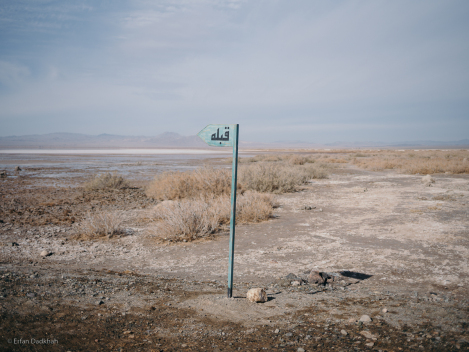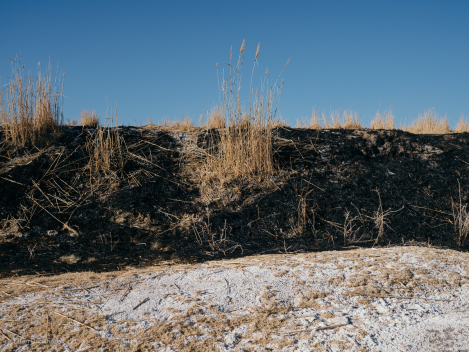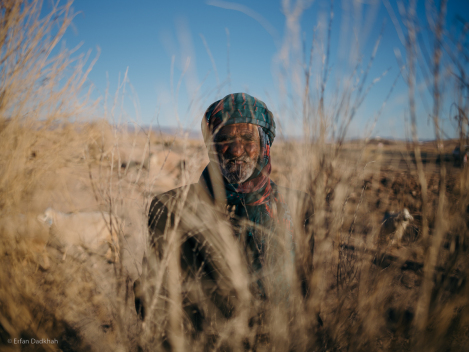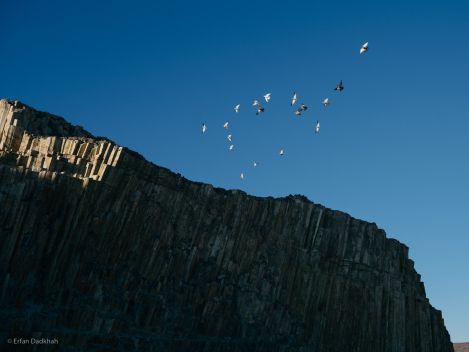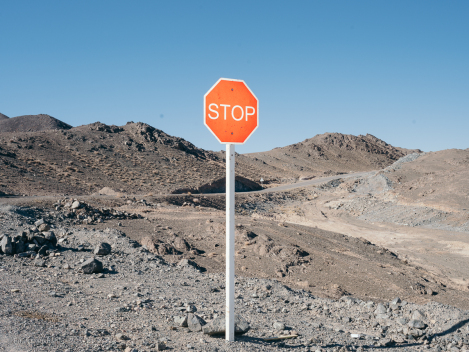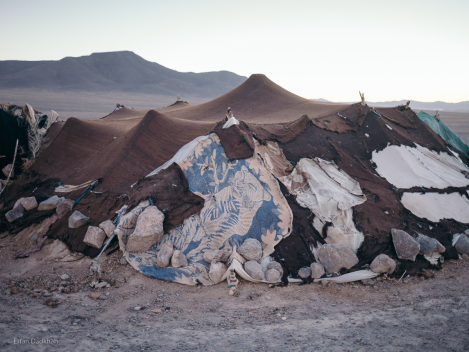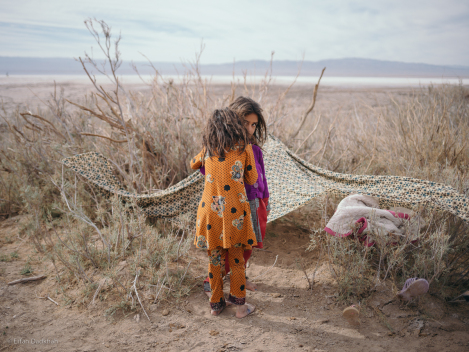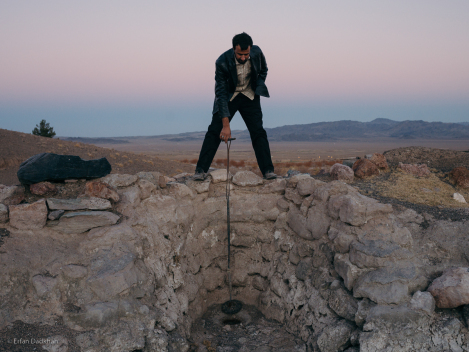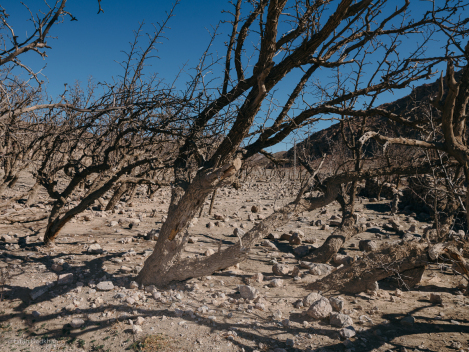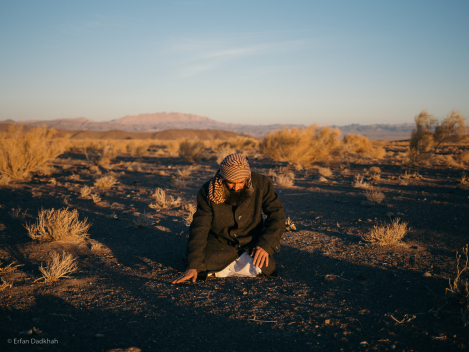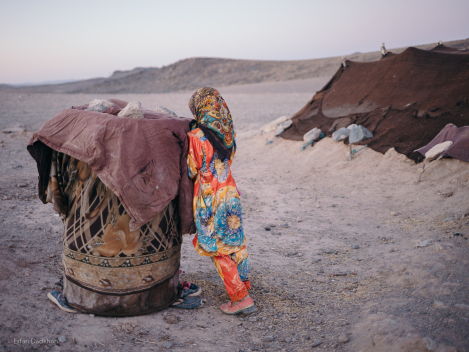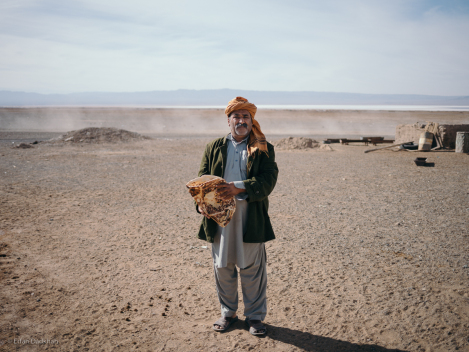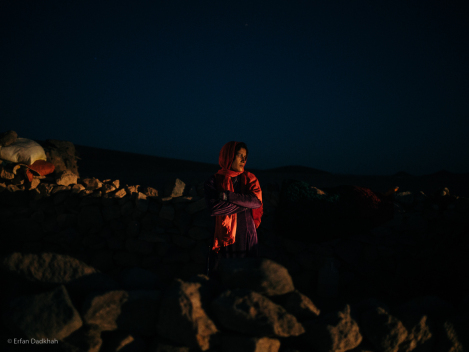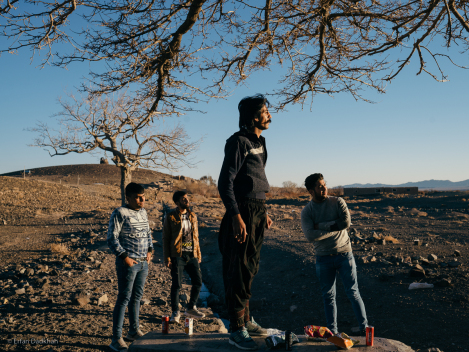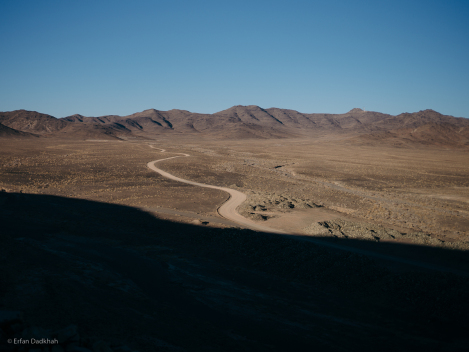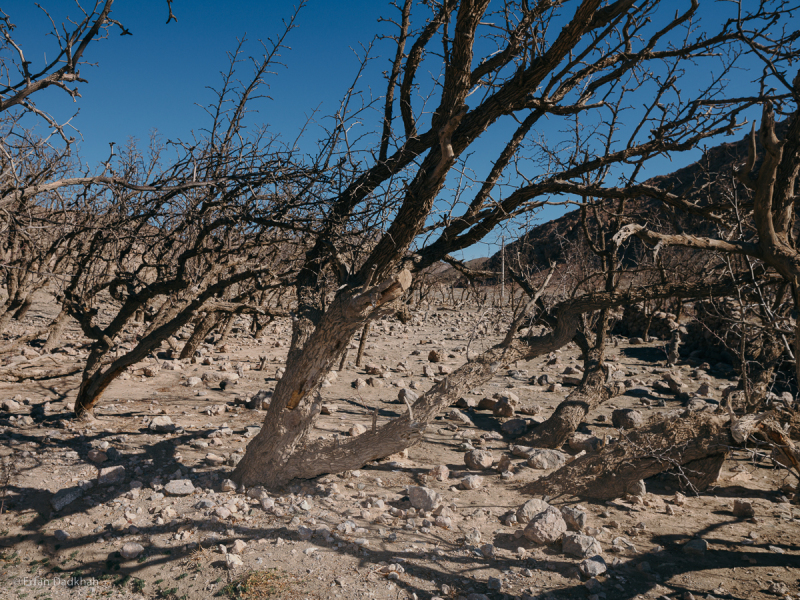
Waiting for Tishtrya
Upon creation of the world, Ahura Mazda[1] decreed Tishtrya[2] to water the world, commanded the clouds to rain and revive the land. Ahriman[3], the perpetual enemy of happiness and virtue, got wrathful and decreed Apaosha[4] to blow dire winds, dry the lands, and wither the plants and flowers. After a crushing defeat from Apaosha, eventually Tishtrya triumphed by virtue of Ahura Mazda. The seas surged, clouds of fog were formed, and the south wind dashed. Then, the south wind thrusted the clouds and fog, and poured rain and hail over the fields and the dwellings of the Seven Countries.
Since 1990s, South Khorasan[5]’s sky has deprived the local people of its rain. Trees have died standing. Drought has evacuated more than 1700 of the villages. Most of the young people have immigrated to cities in the hope of finding a job. The prolonged drought has curtailed the fields. Borders are drawn by stones, and in some cases, these borders barely exceed one meter. For South Khorasan’s people, one meter means all they have for plantation.
The images recount the story of a land which is under the curse of Ahriman, yet remains hopeful for Tishtrya’s victory.
Erfan Dadkhah - Iran - 2019
[1] Ahura Mazda is the creator and sole God of Zoroastrianism. Zoroastrianism is one of the world's oldest religions that remains active.
[2] Tishtrya or Tir , Goddess of rain .
[3] Ahriman , Devil in the religion of Zoroastrianism and ancient Iran.
[4] Apaosha , Demon of drought
[5] South Khorasan Province, the third largest province in Iran, is bordered by Afghanistan, due to its large immigration, it has less than 1% of Iran's population.
در انتظار تشتر
چون اهورا مزدا[1]جهان را آفرید ، تشتر[2]، را به آبیاری عالم دستور داد تا ابر از باران ببارد و و زمین را زنده و سیراب گرداند. از دیگر سو اهریمن[3] که همواره دشمن نیکی و خوشی و آبادی بود، خشمگین شد و اَپوش[4]، را بر آن گماشت تا باد گرم بوزاند و زمین ها را خشک کند و گل و گیاه را پژمرده سازد. تشتر بعد از شکستی سنگین از پوش ، سرانجام به کمک اهورا مزدا به پیروزی رسید. دریا ها بجوش آمدند و مه برخاست وباد جنوب وزیدن گرفت. آنگاه باد جنوب ابر و مه را پیش راند و باران و تگرگ را بسوی کشتزارها و منزلگاهان هفت کشور برد.
از دهه ۱۳۷۰ شمسی آسمان خراسان جنوبی[5] بخیل شده است و نمی بارد. درختان ایستاده، مرده اند. خشکسالی باعث شده ۱۷۰۰ روستای این منطقه خالی از سکنه شود. بیشتر جوانان برای یافتن کسب و کار مناسب، از روستاها به سمت شهرها مهاجرت کرده اند. تداوم خشکسالی، از طول و عرض زمین های کشاورزی هم کاسته است. سنگها ، مرز زمین ها را مشخص می کند و گاهی فاصله دو سنگ از هم، به یک متر هم نمی رسد. یک متر؛ یعنی تمام داشته های مردم خراسان برای کاشتن.
عکس ها روایت سرزمینی است که آسمانش به نفرین اهریمن دچار شده اما هنوز به پیروزی دوباره تشتر امیدوار است.
عرفان دادخواه ، ایران ، ۱۳۹۷
[1] خدای یگانه ایرانیان باستان و دین زردشتیان.
[2] الهه باران در دین زرتشت.
[3] نیروی مخالفِ اهورامزدا و زایندهٔ بدیها .
[4] دیو خشکی در دین زرتشت
[5] خراسان جنوبی ، سومین استان پهناور کشور ایران و هم مرز با افغانستان است که به دلیل مهاجرت زیاد ، کمتر از یک درصد جمعیت ایران را در خودش جای داده است.


